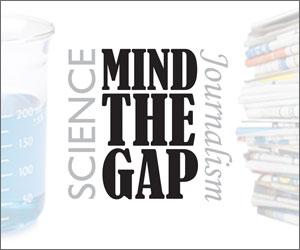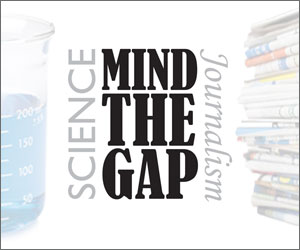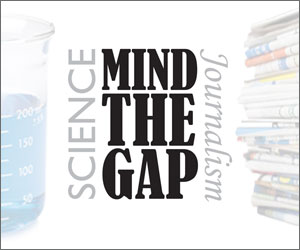 There are no shortage of headlines in the news that make me want to dig deeper and find out the truth. Below I’ve highlighted a few of the past month’s notable offenders as examples of how the headlines that the popular press shares with the public don’t always match up with what the scientific press actually reports. Or, as in most cases, how the report is twisted in such a way to make for a good “story”.
There are no shortage of headlines in the news that make me want to dig deeper and find out the truth. Below I’ve highlighted a few of the past month’s notable offenders as examples of how the headlines that the popular press shares with the public don’t always match up with what the scientific press actually reports. Or, as in most cases, how the report is twisted in such a way to make for a good “story”.
Flyceum: Your Science. Your Career.
We’re following in the tradition of open discussions among scientists that has resulted in important advances in both science and society.
Potatoes Kill Cancer With Electrons from Fukushima? Suspicious Indeed.
by
The Arrogant Labmate: Face ’em or Forget ’em?
by
A new postdoc joined our lab and he walks around like he owns the place- showing no respect to any of the grad students. As a 5th year student, I feel like I deserve some respect, especially since I’ve been working here way longer than he has. Plus, the postdoc has only been a “doc” for about 3 weeks. I want to put him in his place, but I’m not sure what to say or if I’m just being too sensitive.
– mama griz, graduate student
All Work and No Play Makes Katie RSI Prone
by
Is Grad School or Postdoc Success More Important for My Career?
by
I’ve had friends who have had very successful graduate careers (big papers, etc) and then, for any number of reasons, their postdocs were not very fruitful. On the other hand, I’ve known people who had what I would consider very average graduate careers and then ended up having tremendously successful postdocs. My question is whether one of those two situations looks better to employers?
– Mark, grad student
Laughter Really Is the Best Medicine
by
Can We Skip the GRE Subject Test If It’s Too Expensive?
by
Is it appropriate to contact a school and ask them (delicately) how much one of their criteria really matters? More specifically, I’m grappling with the GRE subject test. I’m working as a lab tech right now for a very miserly boss and coming up with another $150 on top of the many hundreds of dollars in application fees I’m going to have to pay is not going to be easy. I don’t want to lose out on one of my top choices because I couldn’t come up with the money for some silly test but at the same time it’s hard to justify the cost when I know I have other significant expenses coming. What should I do?
– Grant, Lab Tech
Sexual Identity and Autocrine Stimulation: Oh, To Be Teenage Yeast
by
Tearing It Up: Glycogen and Its Chemical and Biochemical Breakdown
by
 Not long ago, I was tasked with assaying for levels of glycogen in animal tissue. In most labs nowadays, glycogen is assayed by enzymatically hydrolyzing glycogen down to its component glucose monomers, and then enzymatically oxidizing that glucose in turn, producing hydrogen peroxide which can then react with a number of chromogens to produce a colored product.
Not long ago, I was tasked with assaying for levels of glycogen in animal tissue. In most labs nowadays, glycogen is assayed by enzymatically hydrolyzing glycogen down to its component glucose monomers, and then enzymatically oxidizing that glucose in turn, producing hydrogen peroxide which can then react with a number of chromogens to produce a colored product.
How to Spot Sensational Headlines (Hint: They’re Everywhere…)
by
 This month for “Sensational Science” I wanted to dig into some of the nuances of what makes a claim “sensational” and how you can start to tell right off the bat. On the internet, we often look at the source. For example, an article from ACS Nano (where scientists converted dog poop into graphene) carries more weight than a chain email. The sensationalism comes from intermediaries. For example, a blog linking to the ACS Nano paper that says: “Alchemy is real! Poop converted to valuable nano material!” That’s where some of the digging and investigation needs to start happening. To illustrate this point here are three posts from the same intermediary source- a technology blog Gizmodo.
This month for “Sensational Science” I wanted to dig into some of the nuances of what makes a claim “sensational” and how you can start to tell right off the bat. On the internet, we often look at the source. For example, an article from ACS Nano (where scientists converted dog poop into graphene) carries more weight than a chain email. The sensationalism comes from intermediaries. For example, a blog linking to the ACS Nano paper that says: “Alchemy is real! Poop converted to valuable nano material!” That’s where some of the digging and investigation needs to start happening. To illustrate this point here are three posts from the same intermediary source- a technology blog Gizmodo.
The Ethics of Mooching
by
I go to a lot of seminars around campus that I have no interest in, many of which are outside of my department, simply to get food. Even though I sit through the talks, is there any ethical or karmic reason to stop doing this?
Mooch, grad student








